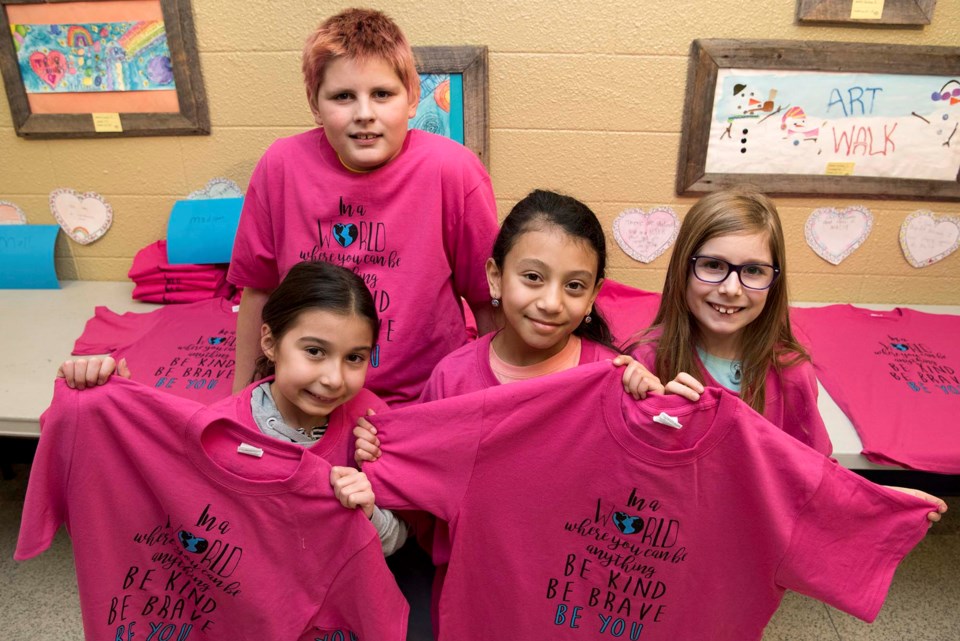St. Albert Public students will take part in an online conference next week to help them stand up for those struggling with their mental health.
About 250 St. Albert Public junior and senior high school students will log into the Headstrong Youth Mental Health Virtual summit on Feb. 28, March 1, and March 3. The conference aims to teach students how to address mental-health struggles and break down the stigma around mental illness.
Headstrong is an evidence-based youth leadership initiative backed by the Mental Health Commission of Canada.
St. Albert Public deputy superintendent of programming and planning Marianne Barrett said the district brought in Headstrong this year to replace its usual student-led iLEAD summit — an in-person event made impractical due to the pandemic.
Barrett said this year’s conference will see students hear talks on mental health from Enoch Cree Nation model and activist Ashley Callingbull and Edmonton artist Joel Lizotte. Day three will see students create and implement in-school projects to improve mental health.
Bellerose counsellor Kelly Lajoie said Bellerose students have taken part in Headstrong several times in the last decade. One recent conference resulted in a provocative poster campaign at the school which taught people how language could hurt: the posters featured common derogatory terms in large letters alongside explanations on why they shouldn’t be used.
Bullying and mental health
Next week’s conference comes on the heels of Pink Shirt Day Feb. 23 — an annual event that sees Canadians don pink shirts in a symbolic stand against bullying.
Lajoie said bullying can have a direct impact on someone’s mental health by causing distress in individuals, which can lead to depression and self-harm.
“They become isolated, they feel unworthy, they become highly anxious to be at school,” she said of bullied students.
“They maybe don’t want to ask for help because they think nothing can be done.”
The pandemic has made bullying and mental health more problematic, Lajoie and Barrett said. Social isolation has cut off many students from in-school supports while bolstering the importance of social media — a forum where bullies can harass victims 24/7 without fear of in-person consequences.
A December 2021 survey commissioned by the Mental Health Commission of Canada (which did not have a reported margin of error as it was a non-random sample) found that youths had greater levels of mental-health issues during the pandemic than other Canadians.
The survey found some 78 per cent of youths aged 16 to 24 reported mild to severe symptoms of depression, anxiety, or suicidal thoughts since March 2020, compared to just 58 per cent of the general population. Youths were more likely to report increased or problematic use of cannabis and alcohol than other ages since the start of the pandemic. Only a quarter of youths with mental-health symptoms were accessing formal treatment.
Stigma can stop people from reaching out for help with their mental health, Lajoie noted. The Headstrong conference is meant to show students it is OK to ask and show them where they can find support.
Lajoie said people can detect signs of mental illness in their peers by reaching out and checking in with them, preferably in person, on a regular basis. Listen carefully, and, provided the person is not in immediate danger, give them the power to choose what to do next.
“For some kids, just telling somebody so they know they’re not alone is the very first step.”
Lajoie advised youths in distress to talk to trusted figures, such as a teacher, coach, or custodian, who can connect them with supports. Alternatively, they can call the Kids Help Phone at 1-800-668-6868.




